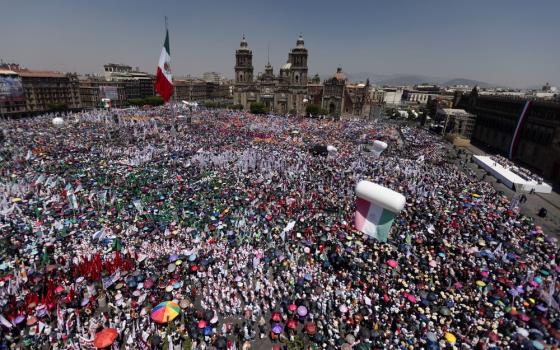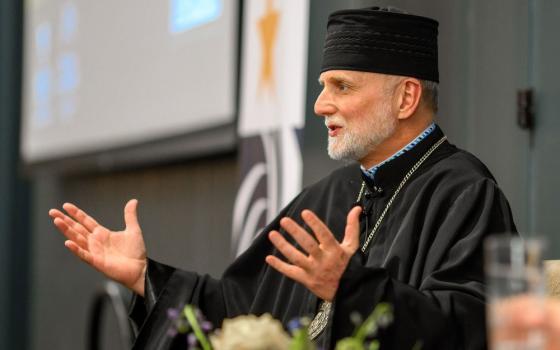Is a split emerging between "economic progressives" and "racial justice progressives"?
The American Prospect's Rachel M. Cohen approached the subject in a recent post responding to an article written by Dara Lind of Vox about Bernie Sanders' controversial response to Black Lives Matter protestors at Netroots Nation, a progressive political convention held two weekends ago.
"When we talk about issues like 'black lives matter,' let me tell you something," Sanders said. "A study came out a few weeks ago talking about youth unemployment in America, an issue we do not deal with as a nation. And here's what, here's what that said. What that report said is that if you are a high school graduate and you're white, the unemployment rate is 33 percent. If you are Hispanic, the unemployment rate is 36 percent; if you are African-American, the unemployment rate is 51 percent. And in my view maybe, just maybe, it is time we invest in jobs and education not in jails and incarceration."
When the protestors' shouts continued, Sanders showed frustration. "Black lives of course matter," he said, "but I have spent 50 years of my life fighting for civil rights and if you don't want me to be here that's OK."
In Vox, Lind wrote of the Vermont Senator's emphasis on economic inequality:
There is a legitimate disconnect between the way Sanders (and many of the economic progressives who support him) see the world, and the way many racial justice progressives see the world. To Bernie Sanders, as I've written, racial inequality is a symptom—but economic inequality is the disease. That's why his responses to unrest in Ferguson and Baltimore have included specific calls for police accountability, but have focused on improving economic opportunity for young African Americans. Sanders presents fixing unemployment as the systemic solution to the problem.
Many racial justice advocates don't see it that way. They see racism as its own systemic problem that has to be addressed on its own terms. They feel that it's important to acknowledge the effects of economic inequality on people of color, but that racial inequality isn't merely a symptom of economic inequality. And, most importantly, they feel that "pivoting" to economic issues can be a way for white progressives to present their agenda as the progressive agenda and shove black progressives, and the issues that matter most to them, to the sidelines.
In The American Prospect, Cohen countered:
We must push back against this false dichotomy of "racial justice progressives" and "economic progressives." I think it's a harmful way to frame what's going on, and it suggests that we can have racial justice without economic justice, and that economic justice can come about without tackling racism. Neither is true, at all.
Racial justice amounts to far more than dismantling our racist criminal justice system and reining in police brutality. Affordable housing, public education, and quality health care are all issues that impact individuals directly based on class and race. Drawing imaginary lines between them just doesn't work.
I'm not frustrated with the coverage because, as Lind suggests, I just want to defend Sanders. I am frustrated because attempts to separate economic issues—whether it's jobs, or retirement savings, or health care, or prisons, or loans, or taxes—from racial justice, is a deeply troubling way to lead a national conversation about racism.
[Vinnie Rotondaro is NCR national correspondent. His email address is vrotondaro@ncronline.org.]


